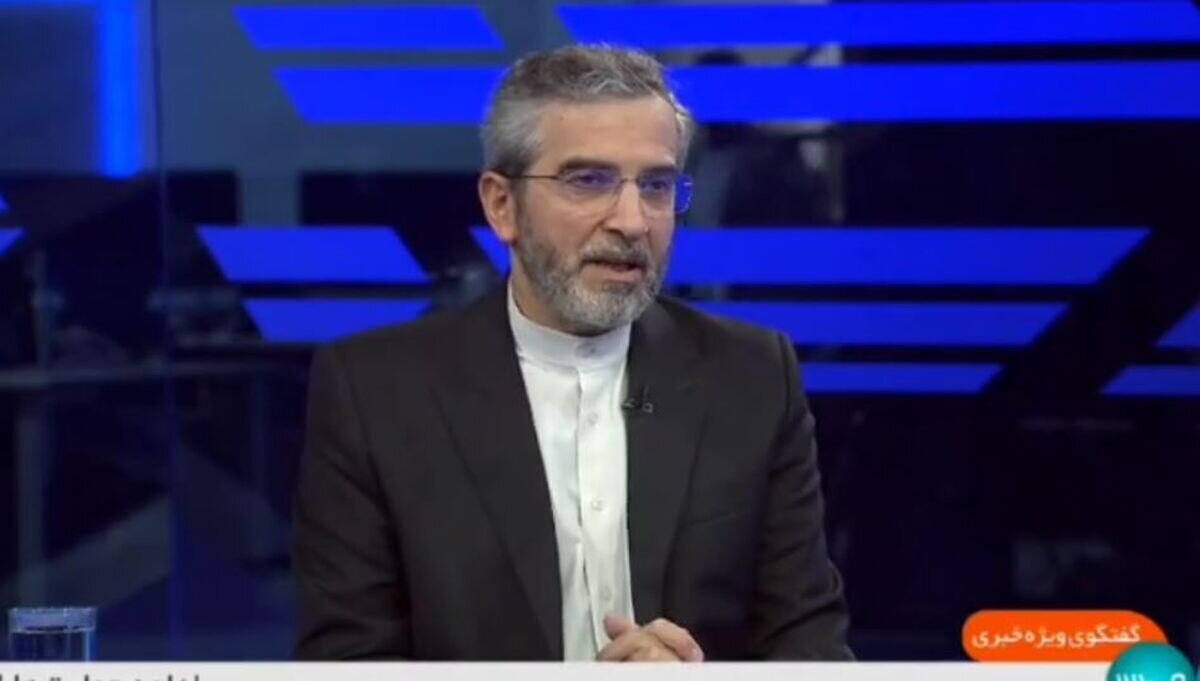Iran aims for regional stability despite Zionist aggression

TEHRAN - Iran’s deputy foreign minister for political affairs says Iran's approach prioritizes stability and security in the region over aggressive tactics employed by the Zionist regime.
In a television program on Monday, Ali Bagheri Kani discussed Tehran's response to the Zionist regime's attack in Damascus, known as Operation Truthful Promise.
He highlighted the incident in Damascus on April 1st, pointing out the strategic error made by the Zionist regime after facing setbacks in Gaza, where they attempted to shift the confrontation scene, leading to this mistake.
Discussing diplomatic efforts before Iran’s retaliatory attack, Bagheri Kani mentioned engagements with various countries, including correspondence with foreign ministers and participation in international forums like the United Nations Security Council. “Despite some support for Iran against Zionist aggression, major powers hindered meaningful action in the Security Council,” he noted.
Bagheri Kani emphasized Iran's approach of pursuing authority and dignity through wisdom, utilizing international mechanisms to uphold rights and consolidate national security and defensive capabilities.
He explained that Iran's decision to respond to Israeli aggression aimed at safeguarding national interests was part of a broader strategy. Bagheri Kani highlighted Iran's commitment to a neighboring policy under President Raisi's administration, emphasizing the importance of fostering strong relations with neighboring countries to counter destabilizing forces in the region.
Bagheri Kani highlighted that Operation Truthful Promise demonstrated that those seeking to disrupt regional stability will bear the consequences, as Iran will not tolerate threats to its security and sovereignty.
He noted the international support garnered after the operation, contrasting it with the Zionists' failure to secure backing in a recent Security Council meeting.
Bagheri Kani highlighted the logical stance of countries supporting Iran, emphasizing the principle of regional stability and the need to hold disruptors accountable.
He concluded by emphasizing the operation's significance in showcasing Iran's capabilities and sending a strong message to adversaries.
Bagheri Kani stressed Iran's decision to utilize Article 51 of the United Nations Charter for reciprocal action, employing defensive and military capabilities within a targeted and legitimate framework.
Regarding the Zionist regime, he emphasized Iran's non-recognition of Israel and criticized U.S. support for the illegitimate regime. He asserted that if the Zionist regime disregards established frameworks, Iran will act in its interests and prevent any external intervention.
The deputy foreign minister underscored Iran's self-reliance in military capabilities and its commitment to national security and territorial integrity, contrasting this with Israel’s dependence on external actors.
He reiterated Iran's readiness to respond decisively to any aggression, warning against further mischief with a promise of swift retaliation.
Bagheri Kani praised Iran's armed forces for their targeted, calculated, and efficient response, affirming that attempts to undermine the operation's significance would ultimately fail.
Shortly before midnight Sunday, Iran launched a swarm of drones and missiles at the occupied Palestinian territories in response to the Zionist regime’s cowardly strike on Iran’s consulate in Damascus on April 1st.
Leave a Comment